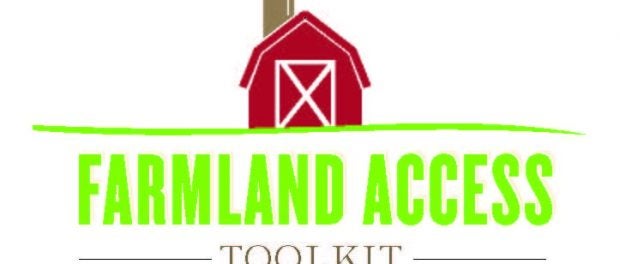Farmland Access Legal Toolkit Available

Farmland Access Legal Toolkit Helps New and Retiring Farmers
The Center for Agriculture and Food Systems (CAFS) at Vermont Law School today launched a new online resource, the Farmland Access Legal Toolkit, to help farmers and landowners affordably access, transfer, and conserve farmland. The toolkit is free and available at farmlandaccess.org.
The Farmland Access Legal Toolkit provides a user-friendly guide for farmers who need land to farm, and for farmers who seek to transition their land to another farmer as part of estate planning or for other reasons. The toolkit explains legal arrangements that provide farmers more affordable and equitable farmland access and help landowners balance earning income for retirement with making their land affordable to the next generation of farmers. Tools covered range from creative leasing to affirmative agricultural easements.
“One of the biggest hurdles that new farmers have to overcome is access to affordable land,” said CAFS Director Laurie Ristino. “At the same time, many of our farmers will be retiring soon and their land will be changing hands. The Farmland Access Legal Toolkit assists both sets of farmers through a suite of resources that focus on innovative models of ownership, leasing, and estate planning that have worked for other farmers in similar situations.”
Land access and farm transfer are critical issues for farmers in the United States.
“Land access is the number one challenge young farmers and ranchers face across the country,” said Land Access Program Director Holly Rippon-Butler of the National Young Farmers Coalition, citing the results of a 2017 National Young Farmer survey. “The Farmland Access Legal Toolkit is a valuable resource to help farmers tackle this barrier—whether they are just starting out, midway through their careers, or thinking about farm transition. With nearly 100 million acres of farmland set to change hands in the next five years, we must act now to keep that land in the hands of working farmers.”
“An improved understanding of the legal options described in the toolkit can help farmers create realistic farm transfer or acquisition goals before consulting with an attorney,” Ristino said. “This makes time with an attorney more efficient, less expensive—because lawyers often charge by the hour—and more likely to lead to a positive outcome for farmers. In the end, there is no substitute for personalized legal help from an attorney who understands your farm, your family, and your goals.”
The Farmland Access Legal Toolkit is funded by the National Agricultural Library, Agricultural Research Service, United States Department of Agriculture (USDA), with additional support from the Wurster Family Foundation and Matt Matule, Esq. For more information about the toolkit and project team, visit farmlandaccess.org/about.
The Center for Agriculture and Food Systems at Vermont Law School supports scholars and practitioners in producing practical, robust scholarship for use by the food and agriculture community. CAFS offers an expanding curriculum in food and agriculture for law and policy students, and training and legal tools to help build sustainable local and regional food systems. In addition to the Farmland Access Legal Toolkit, recent CAFS projects include the Farmers Market Legal Toolkit, Healthy Food Policy Project, Blueprint for a National Food Strategy, National Gleaning Project, and Farm Animal Welfare Certification Guide. For more information about CAFS, visit vermontlaw.edu/cafs, email cafs@vermontlaw.edu.
Learn more about finding land to farm from beginningfarmers.org at https://www.beginningfarmers.org/finding-land-to-farm/








 Your Privacy Choices
Your Privacy Choices
Leave a comment